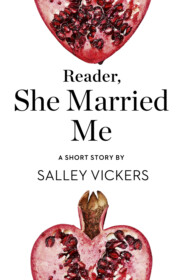По всем вопросам обращайтесь на: info@litportal.ru
(©) 2003-2024.
✖
Instances of the Number 3
Автор
Год написания книги
2018
Настройки чтения
Размер шрифта
Высота строк
Поля
The Hogarth roundabout happened to be the spot where if he had been going to visit Frances Peter would have swung off to the left. The roundabout was also the final stage of the normal route home to Fulham. What no one could know was that Peter was intending to make his way to neither of these destinations, but instead to a discreetly-fronted house in Shepherd’s Bush where unusual tastes of all kinds were catered for. Although neither woman had any knowledge of this other destination, it is true to say that of the two Bridget would have best tolerated the knowledge.
For weeks after Peter’s death Bridget was unable to do anything about his things. Reluctant to move so much as a paper clip from his desk, she walked about the house playing old records, opening and putting down books, eating cold baked beans, keeping unusual hours. Sometimes she moved in a slow, stately dance to the voices of Nat King Cole, Johnny Mathis, Eartha Kitt—tunes she and Peter had known when they were younger: ‘walking out’, as she herself had called it; in particular she became addicted to a song entitled ‘Love for Sale’.
Because Bridget was older than Peter she had always imagined to herself that she would be the one to die first. This had mildly bothered her: past form suggested that she would better be able than her husband to cope with a permanent absence. From time to time she had allowed herself the luxury of making vivid how, in the event of her own death, she would be missed by Peter. She had not quite defined in her mind the form this ‘missing’ would take, but it might have included a new-found impatience on her husband’s part with an alternative source of feminine comfort.
What Bridget found she disliked most, in the weeks after Peter’s death, was having to talk about him. There were numerous phone calls; the letters were not such a pressure—these she could reply to in the familiar-smelling comfort of their double bed, where she wore Peter’s shirts and sometimes, because her feet had grown unaccountably cold, his woolly socks. But the talking…how she loathed it! And yet, how kind people wanted to appear—really, it made one take against ‘kindness’. Yet for all Bridget’s indifference to appearances it seemed wrong to her to leave the answerphone on. She must not be stingy with her loss—she felt it should be shared, available to all, like the torrential rains they were having this autumn.
And it was the case that the skies seemed to have some secret sympathy for her dead husband: they wept and howled impressively, highlighting her own lack of tears.
Bridget found she could not cry for Peter. Indeed, when she was obliged to participate in the conversations she so detested, she was conscious of a note in her voice which she knew must sound at odds with her situation. She was aware that this was disconcerting to those who had called to condole.
To call this note ‘gleeful’ would be inaccurate. It was not glee in Bridget’s voice, but it might have been mistaken for it; so that Frances, when she plucked up the courage to call the Fulham number, thought for a moment, as Bridget peremptorily answered the phone: Oh, she doesn’t mind!
‘It’s Frances Slater,’ she said. And waited.
Bridget knew, of course, who Frances was. Peter, with unusual foresight, had once said, ‘If anything happens to me there’s someone who might get in touch,’ and Bridget, with perfect understanding—though not, as it turned out, perfect prescience—had replied, ‘Nothing’s going to happen to you—don’t be melodramatic.’ But had added, less briskly, ‘Of course I would speak to anyone who mattered.’
However, when she took Frances’s call, she simply said, ‘Ah yes!’ which Frances found discouraging.
‘I knew Peter,’ Frances had continued, and just in time prevented herself adding ‘a little’. She did not want, by implying the connexion with Peter was less than it had been, to slide into appeasing Peter’s wife.
Bridget had never been one for appeasement. ‘I know,’ she said. ‘I expect you’re feeling odd, aren’t you?’ which was a surprise to Frances after the discouragement.
The two women met first in the café at John Lewis. This was Bridget’s idea—she was keen to avoid anything which hinted at the scent of camellias. And it was convenient for Frances, who worked in Soho nearby.
‘I’ve bought a night light,’ Bridget announced after Frances had found her (‘You’ll know me, I expect, I’m big and blonde and I’ll be wearing green’). A conical transparent light with coloured seahorses bobbing around in it sat, slightly absurdly, on the pale teak-effect table between the two women. ‘The seahorses rise and fall when the light is on.’
‘Are you sleeping OK?’ Frances asked. It had sounded like a cue.
‘Moderately,’ said Bridget. ‘And when you switch it off there’s a mermaid at the bottom, combing her hair and admiring herself in a looking glass. See!’ She pointed out a small but perfectly formed maiden with a curvaceous green plastic fishtail.
Frances, who was quick, got the drift: there was to be no demonstration of emotion. ‘I had something like that once,’ she offered. ‘It was in one of those globe things children get given—you shook it and bits flew around.’ The remark felt like a shot in the dark.
Happily it hit home. ‘Usually snow,’ Bridget agreed. ‘Do you want tea? If so we’ll have to get another pot—I’ve drunk nearly all this already.’
Outside the weather rained down tears. Bridget thought: She’s not too bad, and felt it was not impossible that she might, one day, drop tears too.
‘You don’t look like the kind of woman who “needs to talk”,’ Bridget said. ‘I’d better say, frankly, from the outset, that “talking” is not part of my plan. However—’ she went on, as if there had been an attempt to interrupt, which was not the case, for Frances was listening in silent fascination—‘it seems discourteous, somehow, to Peter if we don’t meet, though I hardly know how we should conduct ourselves.’
What Frances thought was: Why does she have to be so different? Aloud, she said, ‘I don’t know that I want so terribly to “talk” either—though there are things I could probably only say to you.’
‘That’s true,’ conceded Bridget, and lapsed into morose silence.
Frances tipped tea around the cup and watched a couple across the way having a row. ‘You’ve always fancied her—don’t bother to deny it!’ she heard the woman say—a woman with badly applied make-up and backcombed hair. At least, Frances thought, we are spared scenes like that. For the first time it crossed her mind that they were a threesome—herself, Peter and Bridget. Were a threesome, she supposed she must think of it now.
‘There’s a concert on at the Wigmore Hall—’ Bridget said, suddenly coming to—‘Schubert—which I like—and Mahler—which I don’t, but we could sneak out after the interval—unless you like Mahler, that is?’
Frances said that she had no particular view on Mahler. As it happened, she had no particular view on Schubert either.
3 (#ulink_3acd7482-4fb7-5c4d-9f62-74221e6031c7)
‘The point is,’ Bridget said, sucking noisily at a bone from the remains of her coq au vin, ‘Schubert is never bogus—but Mahler can be.’
They were eating, after the concert, at a restaurant which each woman had visited with Peter. Neither made even oblique reference to this. Tactfully, they commented on the decor, the stylish young waiters and waitresses, with no suggestion that they might have shared opinions on such matters with the dead man who had brought them together.
Frances said, ‘I’m ignorant about music—but I suppose like it better when it isn’t too loud.’
‘Quite right,’ Bridget agreed. ‘Symphonies are overrated.’ She tapped a cigarette from a blue Gauloises packet. ‘Do you mind?’
Too late if I do! thought Frances. ‘Not at all.’
‘You never know these days.’
Frances thought: She must have been pretty once with that colouring.
Bridget thought: I wouldn’t have minded a nose like that, beaky and aristocratic.
The waiter came and flirted idly with the two women, but more with Bridget because of her French. Bridget asked which part of France he was from and there followed an animated conversation on Arlesian sausage.
‘How did you learn?’ Frances asked.
‘Practice. I learned most haggling. The French respect you more if you bargain hard—but you need the slang to keep up.’
‘I’m not good at languages,’ said Frances. ‘That’s two things you’re better at—languages and music.’
‘It’s not a competition!’ Bridget remarked coldly.
Frances always travelled to work by tube so Bridget drove her home. Passing Turnham Green Bridget said, ‘It’s where they turned’em back, isn’t it?’
‘Back?’
‘The Civil War,’ Bridget explained. ‘The Roundhead apprentices turned back the Royalists here—hence “Turn’em Green”—it was the site of a battle.’
‘Oh, yes.’ Frances was not really listening. Bothered over what she should do about asking Bridget in when they reached the flat, she preferred not to be lectured to about her own neighbourhood. She wanted to dispel the annoyance by saying, ‘That’s three things then you know more about than me: music, languages and local history.’ It was the kind of remark she might have made to Peter and it would have made him laugh. That she could no longer say such things suddenly depressed her. She decided she wouldn’t ask Bridget in after all.
‘Would you like to come in for a drink?’ she heard herself saying and was doubly angry when Bridget accepted. I am managing this badly, she thought, ushering Bridget into the flat where she had been used to receiving Bridget’s husband.
Frances’s flat was like Frances. Drifting round the room Bridget noticed the books were all in alphabetical order. Few ornaments, but three very good paintings on the sunflower-yellow walls.
‘That’s a Kavanagh, isn’t it?’ Bridget peered at a picture of a nude in high heels, reading in a striped deckchair. (Peter, in fact, had bought it for Frances’s thirty-seventh birthday. ‘I thought she was like you,’ he had said, removing all her clothes but her shoes.)
‘Yes,’ said Frances, shortly, glad she had her back to Bridget and was occupied with pouring whisky and water.
Bridget, who had her country’s usual measure of telepathic powers, smiled rather nastily at the back. The nude’s resemblance to Frances had not escaped her; Peter liked that sort of statement: he had once given Bridget a small, powerful bronze of a woman naked on a horse.
She lay back, deliberately sprawling across the clean lines of the sofa, imagining her husband here. He would have drunk whisky and water too. Frances had poured Jameson for her, the whisky Peter had liked. Frances herself, she noticed, was drinking brandy.
‘It’s funny,’ Bridget said, conversationally, ‘I can’t believe he’s dead. Do you weep at all, yourself?











